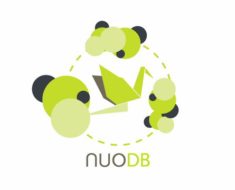
Cloud databases have emerged as a game-changer in the tech field, offering businesses and organizations a flexible and accessible approach to storing and managing their data. A cloud database refers to a type of database system that is hosted and managed in the cloud, rather than on-premises infrastructure. Unlike traditional databases, which are stored and accessed locally, cloud databases leverage cloud computing resources to store, process, and retrieve data. These databases are typically scalable, reliable, and accessible from anywhere with an internet connection.
Applications of Cloud Databases:
Cloud databases find applications across various industries and sectors. They are widely used in e-commerce platforms to manage product catalogs, customer data, and inventory. In the healthcare sector, cloud databases store and process electronic health records, facilitating seamless information sharing among healthcare providers. Additionally, cloud databases enable real-time analytics and reporting, empowering businesses to make data-driven decisions. They also play a vital role in content management systems, customer relationship management platforms, and IoT applications.
Scalability and Elasticity:
One of the key advantages of cloud databases is their ability to scale and adapt to changing data needs. With traditional databases, scaling up storage or computing power often requires substantial investments in hardware and infrastructure. In contrast, cloud databases offer scalability and elasticity, allowing organizations to easily adjust their resources based on demand. This flexibility ensures that businesses can handle high traffic periods, accommodate data growth, and quickly scale their operations without significant upfront costs.
Data Security and Disaster Recovery:
Cloud database providers prioritize data security and implement robust measures to protect sensitive information. They employ encryption, access controls, and monitoring mechanisms to safeguard data from unauthorized access or breaches. Additionally, cloud databases offer built-in disaster recovery features, ensuring data redundancy and backup in geographically diverse locations. This provides businesses with peace of mind and minimizes the risk of data loss due to hardware failures or natural disasters.
Collaboration and Accessibility:
Cloud databases enhance collaboration and accessibility, as they enable multiple users to access and work with data simultaneously. This feature is particularly valuable in today’s distributed and remote work environments, where teams may be geographically dispersed. Cloud databases facilitate seamless data sharing, collaboration, and real-time updates, fostering productivity and efficiency in the tech field.
Cloud databases have revolutionized the way organizations manage and leverage data. With their scalability, accessibility, data security, and collaboration features, they have become a cornerstone of the tech industry. By eliminating the need for extensive infrastructure investments and offering flexible data management solutions, cloud databases empower businesses to stay agile, innovate, and thrive in the digital era.
Dil Bole Oberoi

